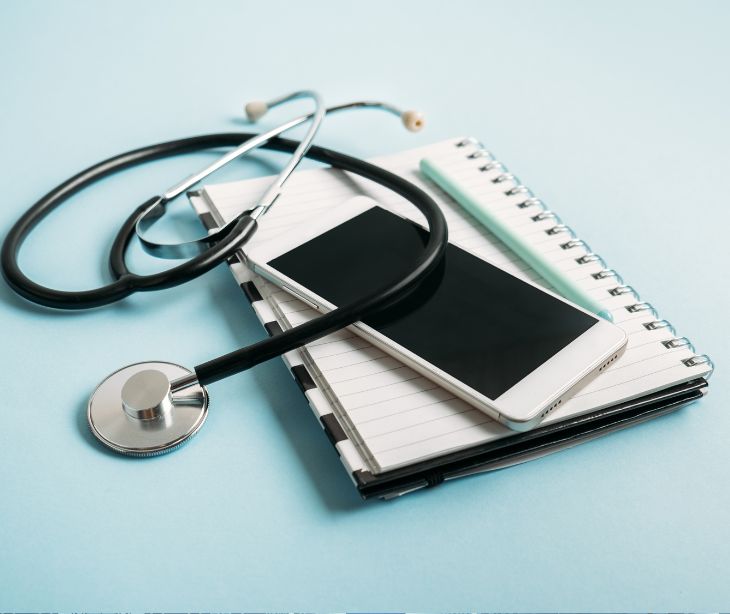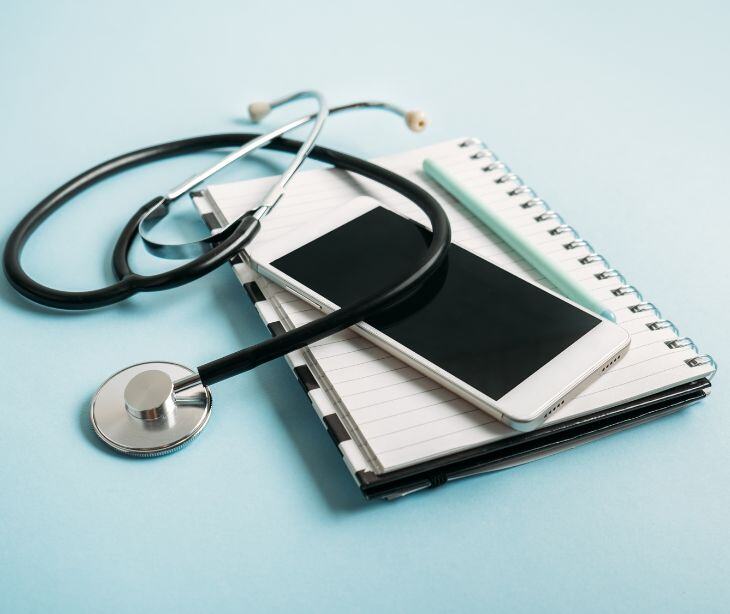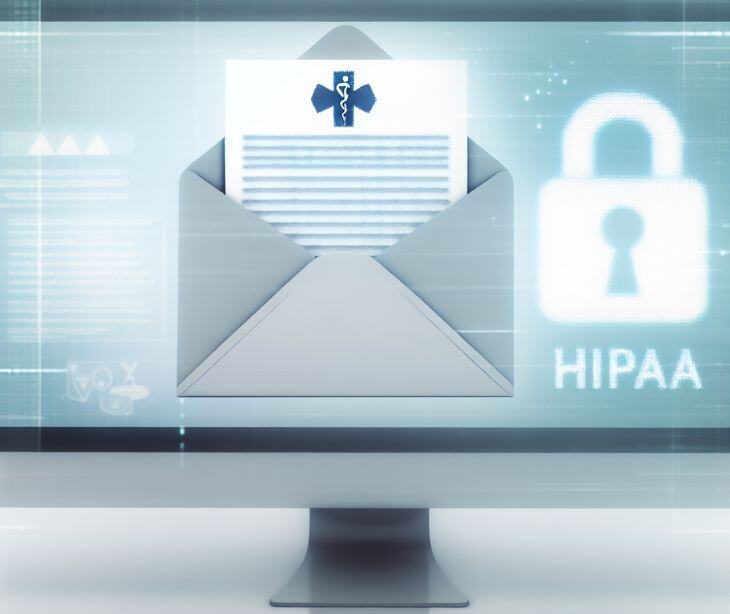3 min read
Mobile device security for HIPAA compliant email communication
Tshedimoso Makhene
March 24, 2024

Mobile devices have revolutionized healthcare delivery, allowing for greater accessibility and efficiency. However, with this convenience comes the responsibility of safeguarding sensitive patient information.
Secure email communication on mobile devices protects patient privacy and maintains HIPAA compliance in the healthcare industry. Prioritizing mobile device security ensures compliance with regulatory requirements and fosters trust and confidence in the confidentiality and integrity of healthcare services provided.
Understanding the risks
Mobile devices are susceptible to various security risks that can compromise the confidentiality and integrity of email communication, including:
- Unauthorized access: Lost or stolen mobile devices can provide unauthorized individuals access to sensitive email content, including protected health information (PHI).
- Data interception: If proper encryption measures are not in place, malicious actors may intercept emails transmitted from mobile devices, leading to data breaches and privacy violations.
- Malware and phishing attacks: Mobile devices are vulnerable to malware and phishing attacks, which can trick users into disclosing login credentials or downloading malicious software, compromising email security.
- Insecure network connections: Connecting to unsecured Wi-Fi networks or public hotspots poses risks of data interception and unauthorized access to email accounts and attachments.
Smartphone use in hospitals
A study titled Smartphone Use and Security Challenges in Hospitals assessed smartphone use among hospital physicians and found that 98.3% use them during clinical practice. Only 4.5% of them are provided with a smartphone by their employer. Most use them for professional communication but never use GDPR-compliant messenger services. Organizational resources like social support and information security-related communication significantly affects security behavior during app selection. According to study researchers, “Smartphones are an important part of digital support for physicians in everyday clinical practice. To minimize the risks of use, technical and organizational measures should be taken by the hospital management, resulting, for example, in a Bring-Your-Own-Device (BYOD) initiative.”
Best practices for mobile device security in HIPAA complaint email communication
Compliance with the Health Insurance Portability and Accountability Act (HIPAA) is paramount for healthcare organizations to protect patient privacy and avoid costly penalties. HIPAA mandates stringent security measures to safeguard PHI, including data stored and transmitted via mobile devices. To mitigate these risks and ensure secure email communication on mobile devices, healthcare organizations should implement the following best practices:
- Use secure email platforms: Use email platforms that comply with HIPAA regulations and offer robust security features, including encryption for data in transit and at rest.
- Implement encryption: Encrypt emails containing PHI to protect sensitive information from unauthorized access during transmission. Ensure that both the email server and mobile device support encryption protocols such as Transport Layer Security (TLS).
- Enforce strong authentication: Require strong authentication methods, such as passcodes, biometric authentication, or multiffactor authentication (MFA), to prevent unauthorized access to email accounts on mobile devices.
- Enable remote wipe and lock: Implement remote wipe and lock capabilities to allow for the immediate deletion of email data and the locking of devices in case of loss or theft, minimizing the risk of unauthorized access to PHI.
- Educate users: Provide comprehensive training to healthcare professionals on email security best practices, including how to identify phishing attempts, avoid downloading suspicious attachments, and use secure network connections.
- Monitor and audit email activity: Implement email monitoring and auditing mechanisms to track email activity on mobile devices, detect anomalies or suspicious behavior, and ensure compliance with organizational policies and HIPAA regulations.
- Secure network connections: Encourage using virtual private network (VPN) connections or secure Wi-Fi networks to encrypt data transmitted between mobile devices and email servers, minimizing the risk of interception on unsecured networks.
- Regularly update devices and applications: Ensure that mobile devices and email applications are kept up-to-date with the latest security patches and software updates to address known vulnerabilities and enhance overall security posture.
Related: HIPAA Compliant Email: The Definitive Guide
FAQs
Can outsourcing email services affect HIPAA compliance for mobile device security?
Yes, healthcare organizations must ensure that any third-party email service providers comply with HIPAA requirements and enter into business associate agreements (BAAs) to safeguard PHI. It is essential to verify the provider's security measures and encryption protocols to maintain compliance.
Related: Business associate agreement provisions
How can healthcare organizations address the challenge of securing email communication on personally owned devices (BYOD) used by employees?
Healthcare organizations can implement BYOD policies that specify security requirements for personally owned devices used to access email and other sensitive data. This may include requiring the installation of mobile device management (MDM) software, enforcing encryption and authentication policies, and restricting access to certain applications or data based on device compliance.
How can healthcare organizations mitigate the risk of data leakage through email communication on mobile devices?
Healthcare organizations can implement data loss prevention (DLP) solutions to monitor and prevent the unauthorized transmission of sensitive data via email, enforce encryption for emails containing PHI, and educate staff on the importance of exercising caution when sending and receiving sensitive information.
Related: Data loss prevention in healthcare
Subscribe to Paubox Weekly
Every Friday we bring you the most important news from Paubox. Our aim is to make you smarter, faster.




